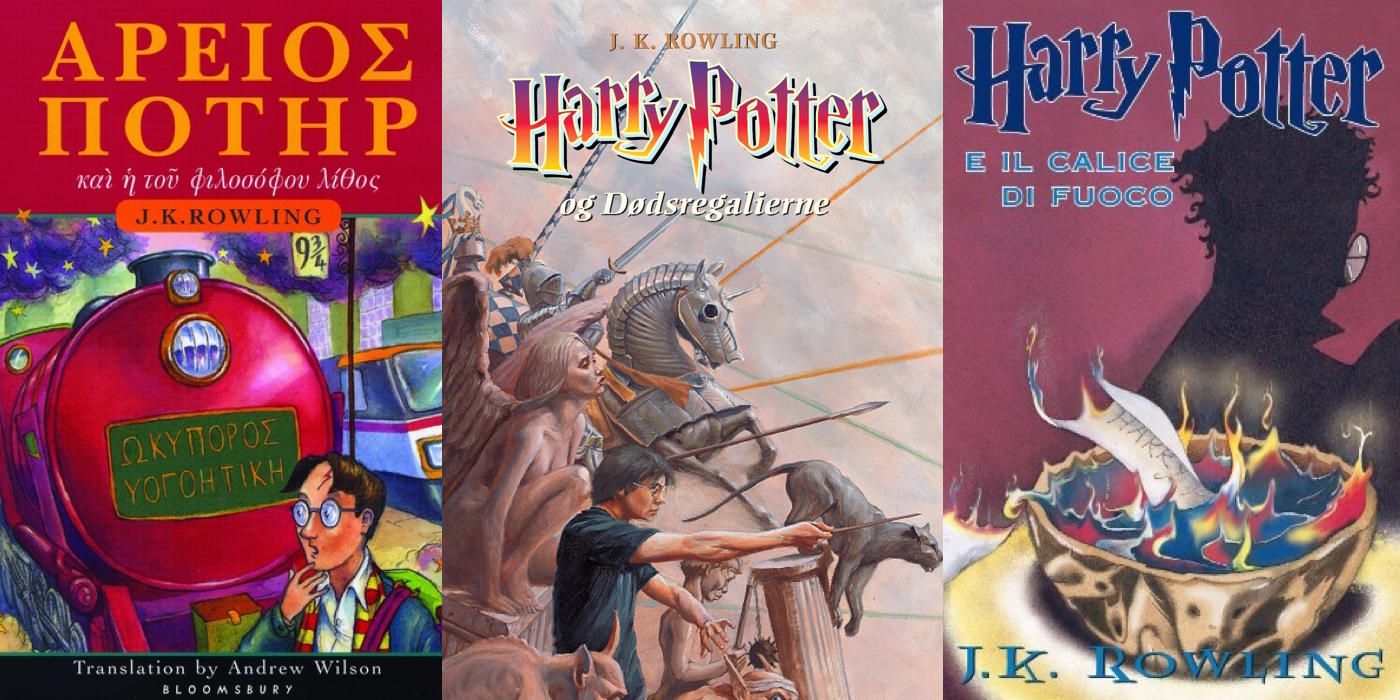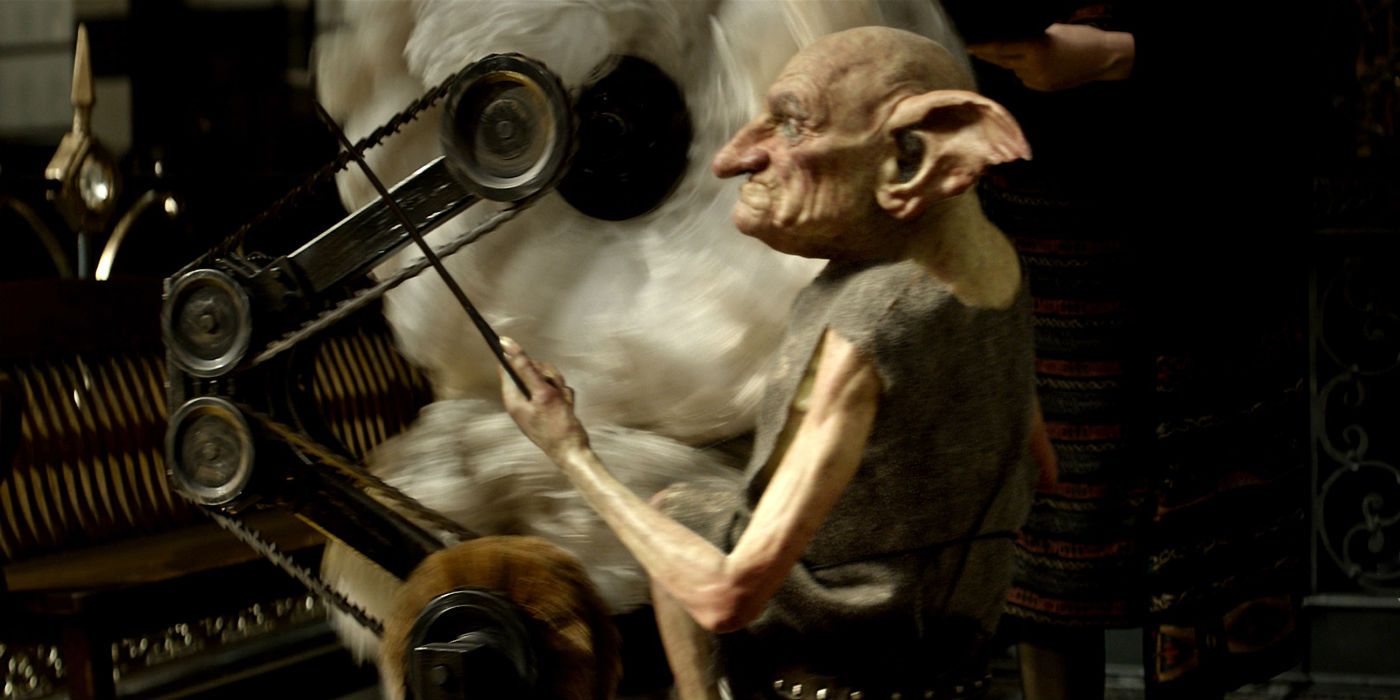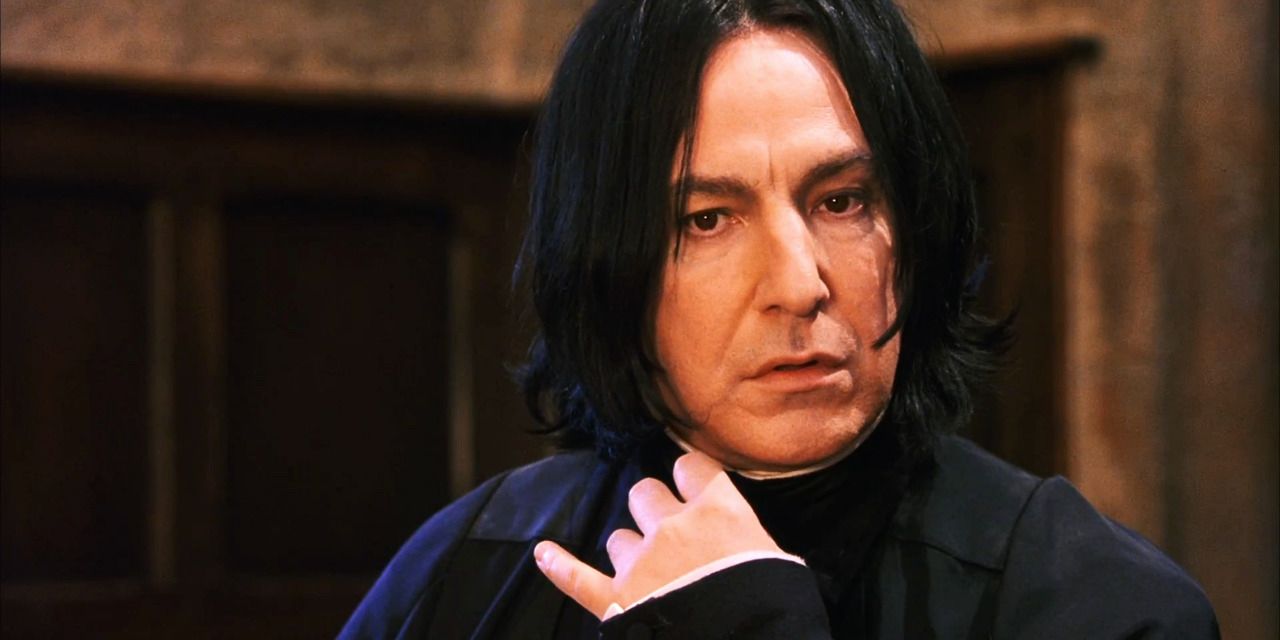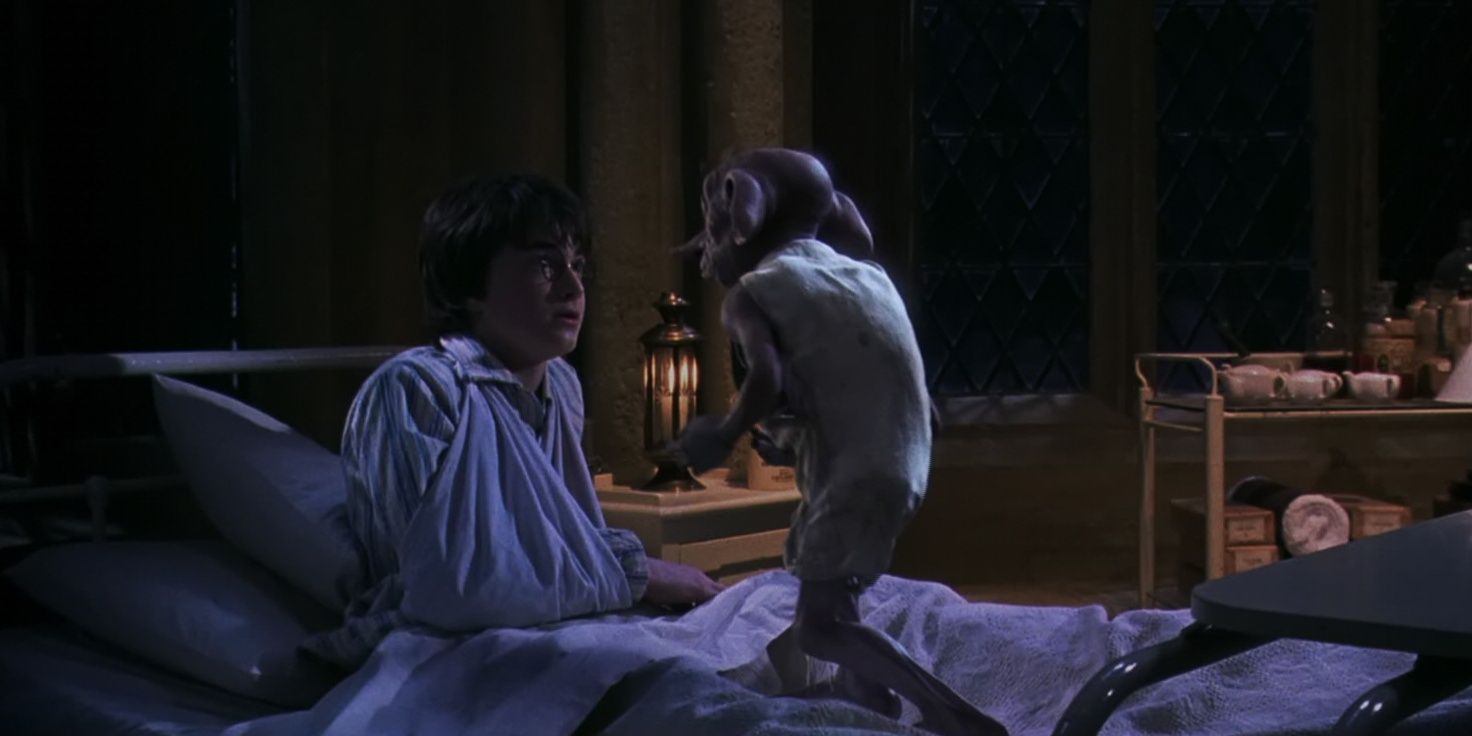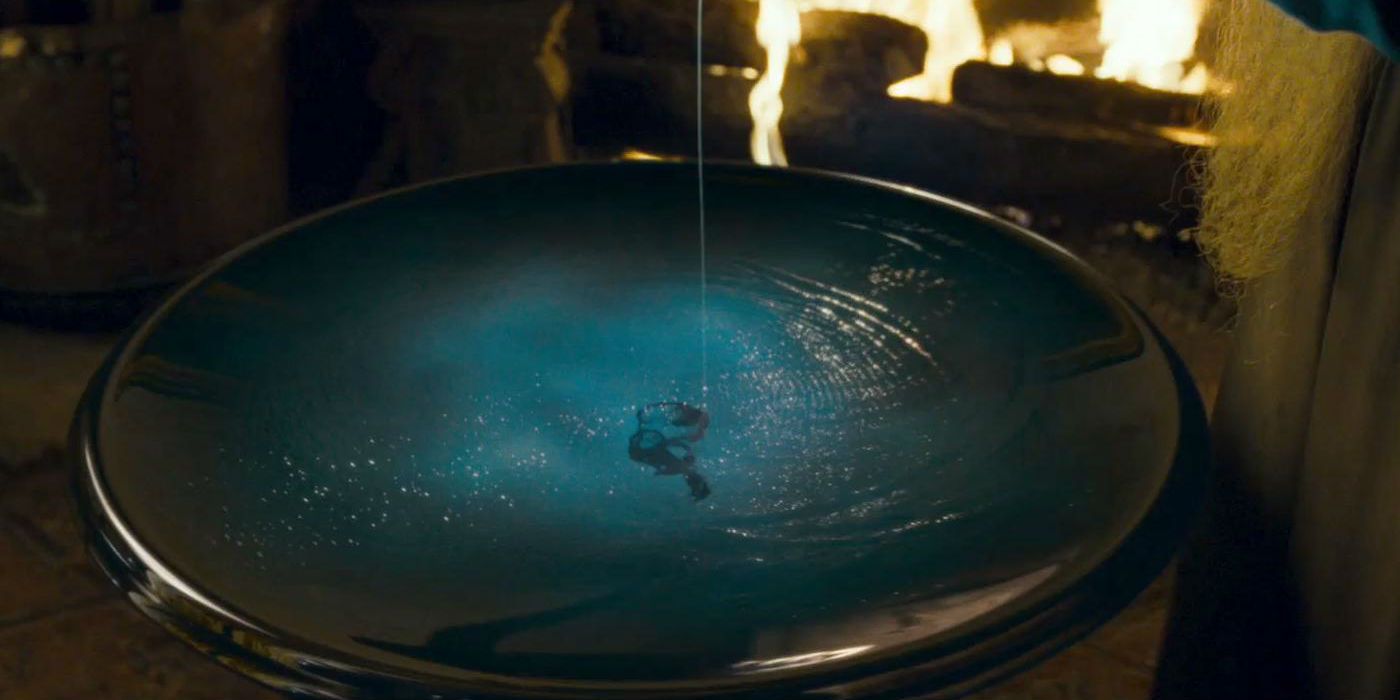Book translations are a wonderful way to share our favorite stories, like Harry Potter, all around the world, and while they provide the means to share most of the story with global fans, they don't always maintain the author's original meaning. That's to be expected in the business of translating language, which usually cannot be exact. Americans are familiar with the titular translation of Harry Potter and the Sorcerer's Stone, which substitutes Sorcerer for the English Philosopher.
Many attempts to be literal, combined with the use of technology and sometimes general carelessness, give us a litany surprising translations — often to the point of hilarity.
Fairy Magic
Professor Flitwick's class, Charms, is definitely handy no matter which field a wizard is entering, and it's a pretty important subject to include in the books. In the Japanese translation of Harry Potter, Charms is changed to "Fairy Magic," which certainly changes how we picture it.
Charms seems to be a popular class to edit when it comes to translation, because it was also changed when the book was translated into Turkish. In this case, it went from the fluffier "fairy magic" to the more foreboding "Talismans," which makes us kind of wish for a Harry Potter-Stephen King and Peter Straub crossover.
The King
Many of the names in the Harry Potter series have been changed in their various translations, but a lot of them aren't all that funny or weird. Hagrid, for example, simply becomes Ogrid when translated in Russian, and in Turkey, Dementors were given the name "ruh emici," which translates to "soul suckers."
In the French version of the books, however, Tom Riddle's middle name is... Elvis. Yep. His full name, which still amounts to the anagram "I am Tom Riddle" in French, is none other than Tom Elvis Jedusor, which gives us all kinds of weird mashup ideas that may or may not include gold lamé .
Hogwarts Houses
When translated into different languages, the Hogwarts Houses required editing in order to make sense to readers. This might make the books easier to understand, but the effects often seem silly in terms of their auditory factor alone. In French, for example, Hufflepuff is known as Poufsouffle, and Slytherin is Serpentard. These sound like terrible insults when spoken in English.
In Portuguese, Hufflepuff is pronounced Lufa-lufa, and in Italian, it's Tassorosso, which literally means "red badger." In Welsh, Ravenclaw is known as Crafangfran, while Gryffindor is called Llereurol. In Finnish, Gryffindor is based on the word for courage and known as Rohkelikko.
S.P.E.W. Got Literal
Hermione's Society for the Promotion of Elfish Welfare is one of the most missed concepts in the films that fans wish had been included — not just in order to meet Winky the Drunken House Elf, but so audiences could get a proper sense of Hermione and Ron's first kiss, which was much sweeter in the books.
In Latvian, the organization is translated to V.E.M.T., which literally translates to the phrase, "to vomit." In the English version, Hermione's acronym has a much milder insinuation that seems like an afterthought even though it's still humorous, but in Latvia, people are literally going to throw up by joining.
Prof Silente
Many of the name changes in the Harry Potter books make sense. They have to help explain the character better in the language they're translated in, after all. Sirius Black, for example, became Sirius Schwartz in the German books. But while it kept the Black sentiment the same, it really fell flat and prompted publishers to change it back to Black in later novels. As Black does sound more bad boy than Schwartz, German kids were understandably confused.
Some translations, however, seem really weird, like the Italian name for Professor Dumbledore, which is "Prof Silente." This would indicate that Albus is a very reserved man, which isn't the case, but is likely due to the "Dumb" in his name.
Stinky And Annoying
While Ron Weasley probably has the fewest weird name changes among the translations of the books, two other main characters have been gifted some unfortunate new names. The translation victims are Hermione Granger and Draco Malfoy. Latvian readers got to know the two as Hermiona Įkyrėlė, which means "annoying," and Draco Smirdžius, which translates to "stinky," which pretty much renders the two wizards more than a quarter of the Seven Dwarfs of Hogwarts. Then there's "Squirrel," which is one of the translations of Professor Quirrell's name, and "beetle fart," which is the translation of Bagshot, or Jukpuk.
One of Professor Trelawney's translations, "Samogoni," may refer to vodka, and one of Snape's names, Snegg, Zlodeus Zlei, further questions his antihero status since it means "villainous villain."
The Time Snape Exploded
No, none of the translations send Snape into a building strapped with explosives, although that does give us ideas for future Hans Gruber fan fiction. But the popular wizarding game Exploding Snap was dubbed "Exploding Snape" in one German version of the book, or "Snape explodiert," giving many readers pause.
Is the game named after Professor Snape? If so, it sounds as if the Marauders may have invented it along with their trademark map. Is it an allusion to what happens when Snape catches you playing around in class? It's highly unlikely that it refers to a game enjoyed by Snape. The wizarding world may never know.
Mead Into Meat
We've all heard of turning water into wine, but German translators were able to pull off the miracle of transforming 800 barrels of mulled mead into 800 barrels of mulled meat. It's such a tiny change, but it sure makes a big difference.
Another fun word change occurred in the Swedish version of the novels, which swapped Nastily Exhausting Wizarding Levels for Terribly Exhausting Wizard’s Test. That may not sound like a drastic change, but the acronym went from N.E.W.T.s to F.U.T.T. Not only does this have a totally different connotation from the original acronym but it's also funny, since "futt" means "measly," which makes the tests sound as if they aren't that hard after all.
Japanese Errors
Many translations of the books are rife with small but noticeable errors, which is common among translations. As any student of foreign language knows, nothing ever translates perfectly. The Japanese translations had lots of examples of this occurrence, from an erroneous translation of the potions puzzle during Sorcerer's Stone that made it impossible to truly solve it to Lily and Petunia's ages being mixed up.
"Free Slave Elf" is a particularly interesting translation, since it gives it a whole new meaning, as does "meat memory," which is the Japanese version of "flesh memories." Japanese translators also opted to give Voldemort and Snape caricature pronouns.
Painful Pensieves
Fans love the wordplay that J.K. Rowling introduces in her books, from the various names she selected for characters to magical incantations. One of these word choices was the term the author chose for the Pensieve that Harry uses to explore old memories and discover how to defeat Lord Voldemort. But the word didn't translate as well in other versions of the book, making for some surprising and hilarious results.
German readers learned about the "think aquarium," for example, while it became a "thought tank" in Norwegian. Swedish readers had a closer translation with "memory sieve," but it's still not as eloquent as the word appeared in its original version.

